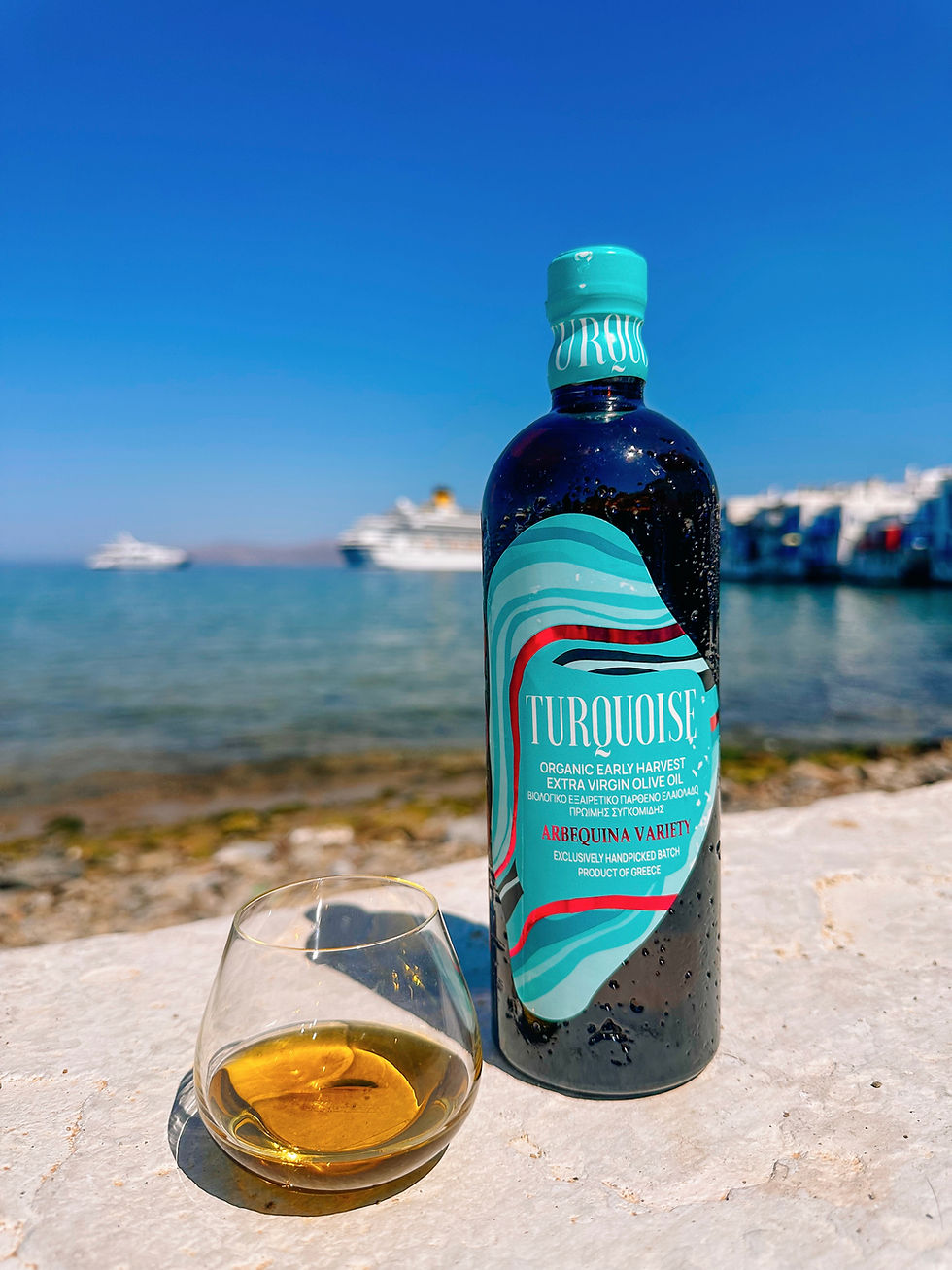Cooking & Frying with Olive Oil
- Mykonos Olive Oil Tasting

- Jul 27, 2022
- 3 min read

Did you know that when you cook with Extra Virgin Olive Oil the antioxidants transfer from the oil into the cooked foods? There is a constant alchemy at hand in the chemical components of food when we are cooking, which is so taken for granted and forgotten when we rustle up a quick meal. What would happen if we slowed down and looked deeper into the chemistry of cooking? Furthermore, what if we observed how the nutrients that are processed once ingested into the body? We would realize that Extra Virgin Olive Oil facilitates the absorption of vitamins and minerals from the food into the bloodstream.
For example, components such as glucosinolates (found in broccoli and kale) and carotenoids (found in carrots) are better absorbed by the body when cooked in Extra Virgin Olive Oil. For something we use on such a daily basis, there is a shocking lack of awareness around olive oil and how we should use it. Moreover, there are common misconceptions and myths to contend with in the general consciousness of popular culture.
First, let’s talk about the “smoking point”. “Smoking point” describes the moment the liquid

starts to convert to gas, changing the fundamental chemical compounds of the fatty acid. Fatty acids which are stable at high temperatures, are by far safer to consume. Extra Virgin Olive Oil has a smoking point of around 400 degrees F/ 200 degrees C. Meanwhile, Olive Oil has a smoking point of around 356 degrees F/ 180 degrees C. Because it is made of monounsaturated fats, Extra Virgin Olive Oil is resistant to reacting with oxygen, producing less harmful “polar” compounds.
There is a great myth spreading around the internet that olive oil is not suitable for frying. It is true that fats do get damaged by high temperatures, causing the formation of harmful lipid peroxides, aldehydes, and carcinogenic compounds. In order to limit this risk, we must cook only with fats that are stable at high temperatures. Olive oil is by far the most stable fat. A top tip: you can reuse Extra Virgin Olive Oil, to fry, up to 4-5 times! Therefore, it’s in fact, cheaper than any of the ‘more affordable options out there.
Many of the refined oils we are accustomed to are very high in poly-unsaturated fats, which leave them prone to oxidation and speedy degradation on being heated. Because industrial kitchens regularly compromise health and quality for profitability, legislation in countries including France, Italy, Poland and Spain enforces a limit to the polar compounds in frying oils of no more than 25%. There isn’t any legislation protecting the consumer on the other hand, which is why education is so important! So to be safe, always go for monounsaturated fats: Extra Virgin Olive Oils are ‘stable’, i.e. protected from oxidation at high temperatures.
Refined oils are almost completely devoid of natural antioxidants, and they degrade very willingly. Canola Oil, Rice Bran Oil, Sunflower Oil, Soya Oil, and even Coconut Oil! They deteriorate when heated, becoming dangerous. Extra Virgin Olive Oil, on the other hand, preserves its own nutritional value while also facilitating the transfer of nutritional compounds from the foods it is combined with, into the body.
Always keep in mind to put yourself a priority and feed your body with the best Extra Virgin Olive Oil you can find. A good Extra Virgin Olive Oil can never be cheap!





Comments